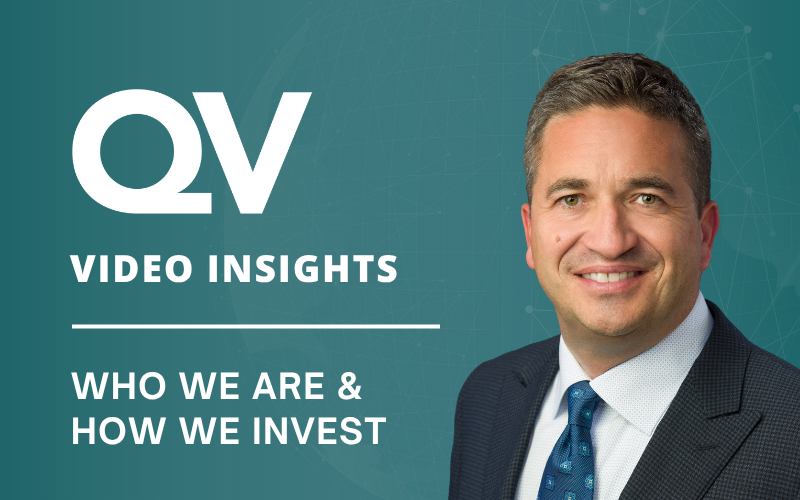Recently, two QV colleagues and I attended Berkshire Hathaway’s Annual Meeting in Omaha, Nebraska. The day began with a chilly 45-minute wait outside the venue, surrounded by an excited crowd of 30,000 shareholders. Once inside, the event began with a half-hour tribute to the “architect” of Berkshire Hathaway, the late Charlie Munger. In case you missed our tribute to Charlie’s legacy, you can read it here.
For the rest of the day, we had the privilege of hearing directly from Warren Buffet, Greg Abel (head of non-insurance), and Ajit Jain (head of insurance). Several themes resonated with us, including the trust placed in management, the relationship between cash and valuations, and preservation of capital – investment principles that are always worth reiterating.
Trust in Management
When Buffet was asked who would make the investing decisions once he’s gone, he stated that he would leave that to Greg Abel, who will succeed Buffet as CEO. This came as a surprise to many, as it was thought that Ted Weschler and Todd Combs, managers of a portion of Berkshire’s funds, were likely to be the next investment managers proceeding Buffet. It appears Buffet has developed a high degree of trust in Greg, similar to the relationship he had with Munger. Buffet made this confidence clear when he said, “[Greg] understands businesses extremely well, and if you understand businesses, you understand common stocks.”
At QV Investors, we place a great deal of trust in the management teams of the companies we invest in. When assessing a business, we often ask ourselves whether it requires exceptional management or if it can succeed without exemplary leadership.
Just as Berkshire Hathaway should continue to thrive under Greg’s leadership, we have holdings across our strategies that are resilient to key-person risk. In our global large cap strategy, a recent change of CEO at AutoZone was viewed as a low-risk event due to structural competitive advantages and the extraordinarily high-quality nature of the business.
Valuation Dictates Cash Levels
Berkshire Hathaway’s cash reached a record high of $189 billion in the first quarter of 2024 and, according to Buffet, could reach $200 billion by the end of next quarter. Buffet is comfortable with this level of excess cash for two reasons: first, U.S. Treasury bills are yielding north of 5.4%; and second, it is difficult to deploy that level of cash into the market. Buffet put it simply, “There remain only a handful of companies in this country capable of truly moving the needle at Berkshire, and they have been endlessly picked over by us and by others,” emphasizing the struggle to make meaningfully large investments at current valuation levels.
Buffet reiterated a quote heard many times, “We only swing at pitches we like.” This resonates with our investment philosophy at QV where we prioritize patience and selectivity when evaluating potential investment opportunities. When market exuberance has pushed share prices beyond their fundamental values, we are comfortable holding above-average cash balances, rather than taking on increased valuation risk for lower expected returns.

Source: Capital IQ
Preservation of Capital
Berkshire Hathway has long touted the importance of capital preservation and risk management. Buffet emphasized the need to avoid unnecessary risks and to focus on investments that offer favourable risk-reward profiles. His famous quote, “Rule number one: never lose money. Rule number two: never forget rule number one,” perfectly encapsulates this philosophy. While mistakes do occur in any profession, it’s important to learn from them and ensure safeguards are in place to prevent the same mistakes from happening again. “Sometimes, we’ve done things that were big mistakes…but we never get close to fatal mistakes.” This quote highlights the importance of a robust and repeatable process, which includes an in-depth review of any errors made.
At QV, we share a similar mindset when it comes to preserving capital and our approach to risk management. We focus on investing in businesses with competitive advantages, resilient business models, healthy balance sheets, along with the remaining 7 Tests that have guided our approach for decades.
Just the Beginning
As first-time goers to the annual meeting, we could feel a sort of haze in the air without Munger there. However, Buffet’s lessons from decades of investing alongside Munger were clear and abundant. The topics discussed here were just the tip of the proverbial iceberg from a day filled with lessons about life, investing, and so much more. As fortunate attendees, we left the event with our minds even fuller than our bag of memorabilia.





